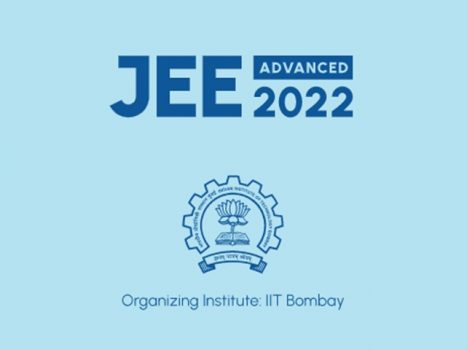The Joint Entrance Examination (JEE) Advanced 2022, which will be held the following week, is being prepared for by students all throughout the country. Aspirants must be eligible for admission and achieve a high JEE Advanced rank in order to enrol in one of India’s most prestigious engineering colleges or institutions of their choosing.
To better understand each subject, they must manage their time properly and take several online practice exams. The purpose of JEE Main, which bases its questions on specific concepts and their use, is to evaluate an applicant’s accuracy and strike rate.
To pass the test on these multi-conceptual problems, you must have a high IQ and strong analytical skills in addition to a firm grounding in the subject matter.
The syllabus’s subjects and subtopics must now receive all of the attention. Extending the curriculum will be pointless. The main portions of the curriculum, broken down by subject, are offered below to aid candidates in staying on course.
Mathematics: circle, parabola, hyperbola in coordinate geometry; functions, limits, continuity and differentiability, application of derivatives, definite integral in calculus. Complex numbers, quadratic equations-expressions, vectors and 3D geometry, probability, matrices. The subjects that are crucial are vectors and 3D. In addition to this, complex numbers must also be a focus because there are always two to three questions.
Physics: waves and sound, capacitors and electrostatics, magnetics, electromagnetic induction, mechanics, optics, and contemporary physics. The majority of experts agree that mechanics is one area of physics that should receive a lower grade. However, to make matters worse, this is also the subject that makes up the majority of the results in the JEE (advanced) exam. As a result, this issue cannot be disregarded. Aspirants can also work to concentrate on other high-scoring courses, such as optics, electricity, and magnetism, among others, to assure better results.
The subjects that have received the most JEE questions over the past few years are mechanics, electricity, and magnetism, reflecting their relevance, according to trends.
Chemistry: Key concepts in inorganic chemistry include qualitative analysis, coordination chemistry, and chemical bonding. In contrast, electrochemistry, thermodynamics, and chemical equilibrium are the grading criteria in physical chemistry. Make sure you finish by covering Organic Chemistry as a whole.
Aldol condensation, Cannizzaro, and Perkins reactions are the names of the reactions listed in the syllabus for the chapter on “carbonyl compounds.” Aspirants can review the PYQs from the previous ten years for this. The most significant point is that, although some chemical processes might not be covered in the syllabus, they are heavily utilized in the manufacture and synthesis of several significant groups of organic molecules. For instance, Hofmann’s bromamide degradation, though it isn’t stated, is a great way to make one-degree amines.
Some chapters, such surface chemistry, have little information but nonetheless count toward the score. Due to the intense competition, applicants should prepare for the exam and maintain consistency.







Thanks, very helpful!
Thanks Shashank!